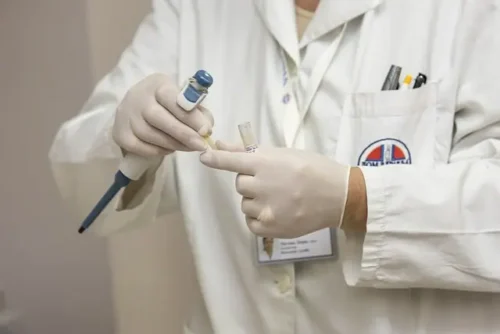
7 Steps Following A Diagnosis
Receiving a medical diagnosis can be a life-changing event, and it’s normal to feel a flood of emotions like being overburdened, afraid, and anxious about the future. It’s best to take deep breaths, remain calm, and think with a cool mind. You might get questions, concerns, and fears circling your mind regarding what you should do next and how your life will be from that moment.
The good part is that there are steps you can take to navigate this new journey in a way that feels empowering and proactive, and this article is here to walk you through them. So, take a deep breath, set aside any worries, and check out what you can do following a diagnosis and move forward with a newfound sense of strength and purpose.
1. Find A Suitable Doctor
The first step after receiving a diagnosis is to locate a qualified doctor who has expertise in treating patients with illnesses similar to yours.
For that, you can get referrals and recommendations from your primary care physician or healthcare providers. It is important to consider several factors, such as the doctor’s credentials, experience, communication style, and vice versa. You can also do online research and read reviews from other patients to gain insight. Various medical centers have a team of specialists who work together to provide comprehensive care and have access to the latest treatments and clinical trials. It is especially beneficial for patients with complex conditions like cancer. In that case, finding the right cancer center may be essential as they also offer benefits and financial compensation.
2. Develop A Treatment Plan
It’s essential to explore the different treatment options available for your condition after getting your diagnosis. You may need to experiment with various therapies or treatments and adjust dosages or frequencies. It can help you and your doctor to determine what works best for you and make any necessary changes to your treatment plan over time. It might be a combination of multiple strategies or just a single technique, such as therapy or medication, that you can make with the help of your doctor.
Additionally, deciding on a course of treatment and creating a treatment plan might assist you in determining whether any extra resources or forms of assistance are required.
3. Educate Yourself About The Condition
It is critical to educate yourself on your disease by reading up on it. It can assist you in comprehending your symptoms, available treatments, and what lies ahead. You may be able to make wise choices regarding your health and actively participate in the treatment of your disease.
Additionally, knowing more about your disease might help you and your healthcare professional communicate more successfully. It will enable you to ask intelligent questions and provide useful information that will aid your healthcare practitioner in making more precise diagnoses and creating more efficient treatment strategies. You can feel like you have greater control over your health by learning more about your illness. You won’t be left in the dark and unsure of what is happening or what to anticipate.
4. Learn More About Follow-Up Tests
Follow-up tests help track the development of your disease, spot any potential problems, and assess how well your current treatment strategy is working. For instance, blood tests can reveal details about how your organs are working and the quantities of different substances in your body. They usually track kidney function in diabetic individuals. On the other hand, X-rays, CT scans, and MRI scans are imaging tests that can help you see inside your body and find any anomalies. They can track the development of tumors or gauge the course of arthritis.
All these tests can help your doctor catch any new developments quickly and understand how your body is dealing with them. This approach can ensure that you receive timely and appropriate treatment and enable you to feel more in control of your health.
5. Make Lifestyle Changes
To manage your disease and any potential adverse effects of treatment, your healthcare professional could suggest particular changes to your daily routine. It may include changes in your diet, like foods that have been fortified with important vitamins and minerals, which can assist your immune system and general health. Besides, you might be asked to exercise regularly to help you feel less stressed, have more energy, and be more physically fit.
It may also include limiting your alcohol intake and giving up smoking can both improve your health. Additionally, stress management techniques like meditation, yoga, or counseling can enhance your emotional well-being and lessen the negative effects of stress on your physical health. Last but not least, getting enough sleep might be essential for treating your illness and promoting your general health.
6. Monitor Your Condition
It’s essential to keep an eye on your health after a medical diagnosis to spot any changes or concerns right away. Keeping a symptom diary and noting when you encounter symptoms is one of the simplest ways to accomplish this. By keeping track of the symptoms and when they occur, you might spot any trends or triggers that might be affecting your health. You might also need to check your vital signs, such as blood pressure or heart rate, which you can do with a home monitoring device or by scheduling routine appointments with your doctor.
It’s crucial to adhere to advised testing schedules and talk to your healthcare physician about any unusual results. You may track many elements of your health with health apps or gadgets, like your activity levels and sleep.
7. Connect With Loved Ones
It’s critical to keep in mind that you are not required to experience a diagnosis alone. During this trying time, your loved ones can be a source of support and strength.
You can manage the stress and anxiety that can come with a diagnosis by staying in touch with your loved ones, can take a vacation from the difficulties of your disease, and concentrating on enjoyable experiences and memories by spending time with the people you care about.
Read More: Why Is Medical Writing Essential for Public Health Awareness?
Conclusion
A medical diagnosis does not define who you are as a person, so always remember to ask for help. You can take charge of your health and proceed with confidence by adhering to these measures. These guidelines can help you go through the process of receiving a medical diagnosis, which can be a challenging and overwhelming experience.


